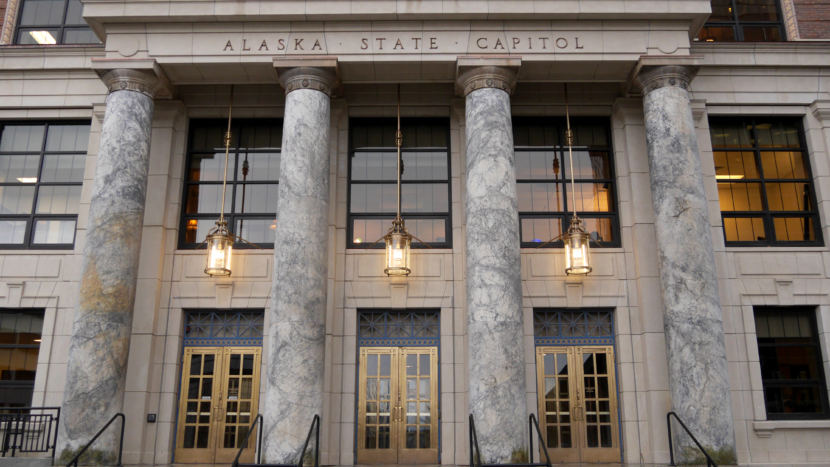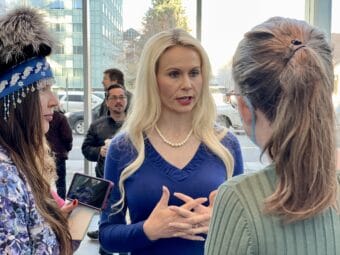
In many states, it’s already clear who will lead the legislature and what the agenda will be when they meet next year. But not in Alaska.
The next legislative session is only a month away. But major differences among Republicans mean Alaskans still don’t know who will be in the majorities in both the House and the Senate.
Soldotna Republican Sen. Peter Micciche said Thursday that all 13 Republican senators have met twice, most recently last week. But meetings between smaller groups are happening every day.
“I’m still hopeful that something is coming together,” that will lead to a Republican majority, he said. “And, frankly, I see anything else as being relatively unacceptable, considering the softening on positions that people have had, that should bring us together.”
Republicans have had differences over policy issues. Examples include whether to follow a law that limits how much the state can draw from permanent fund earnings, or a law that sets the traditional formula for permanent fund dividends.
Micciche said once Republicans have agreed on their objectives and formed a majority, it should be open to some Democrats who share those objectives.
“I’m not one that looks at ‘good people’ and ‘bad people.’ I mean, everyone that’s serving, is serving honorably in the Senate,” he said about partisan differences. “My point is, that Alaskans elected Republicans on a 2-to-1 basis in the Senate.”
Micciche said one advantage to Republicans sticking together is that they may be able to sit down with the governor and affect what he chooses to veto from the budget.
The seven Democratic senators can’t influence whether the Republicans can agree among themselves. But if the Republicans can’t agree on a majority, Anchorage Democratic Senator Bill Wielechowski said, the Democrats will help form a bipartisan majority.
Wielechowski was part of the Bipartisan Working Group that led the Senate from 2007 to 2012.
He said the group was successful in setting aside controversial issues and focusing on the state’s finances.
“In my experience, the best form of government that you get is when you have bipartisan government — when you have people across both sides of the aisle working together,” he said.
On the House side, the biggest news since the election was the decision by Kodiak Republican Rep. Louise Stutes to stay with the current majority, which also includes Democrats and independents. That means the House is divided 20-20. Stutes said being in the current majority has benefited her district.
“My coalition has been very supportive of the needs of my community, and that’s my priority,” he said.
She said it’s in the interest of her constituents, including supporting the fishing industry and the Alaska Marine Highway System.
She disagrees with Republicans who won’t vote for the state budget, once it’s gone through the budget process. She said all members of the majority can affect the budget, but they have to be willing to compromise.
“You have to have certain principles that you’re organizing around,” Stutes said. “And I was unable to detect what those principles were with the Republican majority, or the Republican caucus.”
Two years ago, eight Republicans joined the coalition. It’s unclear how many — if any — more Republicans beyond Stutes will join it this time.
Stutes declined to discuss the talks on forming a new majority. But she said she’s hopeful it will happen before the start of the session on Jan. 19.



